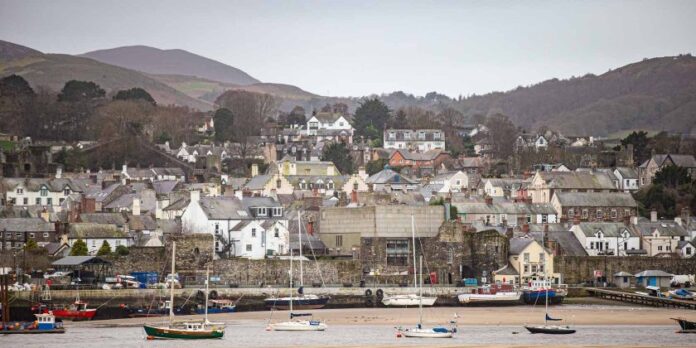Deeside.com > News
Posted: Sat 13th Aug 2022
Updated: Sat 13th Aug
|
Listen to this article |
An article published by the journal Sustainability recently recommended that tourism sectors in Wales address existing skills gaps, to help local businesses and boost the recovery from COVID-19.
Prior to the pandemic, tourism was one of the fastest growing industries in Wales, making up 10% of the workforce.
Across five tourism sectors — accommodation, food and beverage, destination management, visitor attractions, travel agents and tour operators — the highest green and social skills gaps were identified in food and beverage businesses, whilst accommodation reported the lowest skill gaps.
The research also indicated that training in sustainability skills is essential, regardless of other variables, especially as sustainable tourism development is essential to ensure a resilient recovery.
These insights echoed The United Nations World Tourism Organisation, who called for the tourism industry to shift towards more sustainable business models to transform the sector.
Previously, the Welsh Government also reiterated its commitment to address issues in the hospitality, tourism, and retail sectors, with goals to improve workers’ conditions and increase capital investment for post-pandemic recovery.
Along with considerations to bridge existing skill gaps, it’s important for both the government and the industry to work together to bring down barriers to fair work for employees.
The state of global tourism
In January 2022, the amount of global international tourist arrivals more than doubled with 18 million more tourists recorded worldwide.
While all regions experienced a strong rebound, Europe and the Americas lead the numbers with 199% and 97% increase respectively. Even so, the amount of international arrivals still remained 67% below pre-pandemic levels.
Along with this increase in numbers comes a rise in demand for luxury travel globally, according to findings from Absolute Reports market research.
The global market size for luxury travel is projected to reach USD$36010 million (£2,9841 million) by 2027, at a CAGR of 8.4%, as travellers look to pursue higher standards of comfort when it comes to luxury accommodation and dining, while being able to immerse themselves in local culture.
Across the market types covered in the study, luxury voyages are one of the key segments where significant growth is expected, as a sector where both tourism and hospitality can meet.
For example, Explora Luxury Cruises offers all-inclusive packages that feature sophisticated cuisine across nine distinct culinary experiences, unlimited beverages in the in-suite mini-bar, and access to spas, wellness, and fitness programmes onboard for travellers looking for a well-rounded experience.
Allowing travellers to choose from a wide selection of high-end and culturally rich destinations, these ocean journeys provide an opportunity for tourists to not only experience five-star accommodation options but also learn about different cultures.
Tourism in Wales
On the home front, local tourism firms are zooming in on attracting and retaining employees in the tourism sector. For example, Hays Travel North West changed their recruitment process to reach more candidates in response to a surge in bookings, as pandemic travel restrictions loosened.
This provided potential apprentices an opportunity to learn more about the tourism industry — along with quality employee training — to ensure they are equipped with the right skills to thrive in a tourism career.
In line with the rise of the hospitality sector, Chester Zoo recently unveiled artist-generated images of The Square, their upcoming luxury wedding and events venue set to open in 2023.
This development came after the charity zoo took home two major awards in the VisitEngland Excellence Awards, which crowned it as the country’s top visitor attraction for overcoming the pandemic, while offering travellers a world-class zoo experience that prioritises conservation work.
A commitment to addressing skill gaps in relevant sectors as well as prioritising new, luxury experiences for avid travellers are huge contributing factors to improving Welsh tourism and hospitality sectors post-pandemic.
By Patricia Thomas
Patricia Thomas is a freelance writer and blogger interested in topics related to travel and globalisation.
With an interest in learning languages,
Patricia is especially curious about the ways in which culture and language represent the different countries around the world.
When not busy writing and reading travel books, Patricia enjoys family trips to the beach.
Read Next
Spotted something? Got a story? Send a Facebook Message | A direct message on Twitter | Email: News@Deeside.com
Join our no-spam low volume email list:
Get notified about
news from across North Wales














